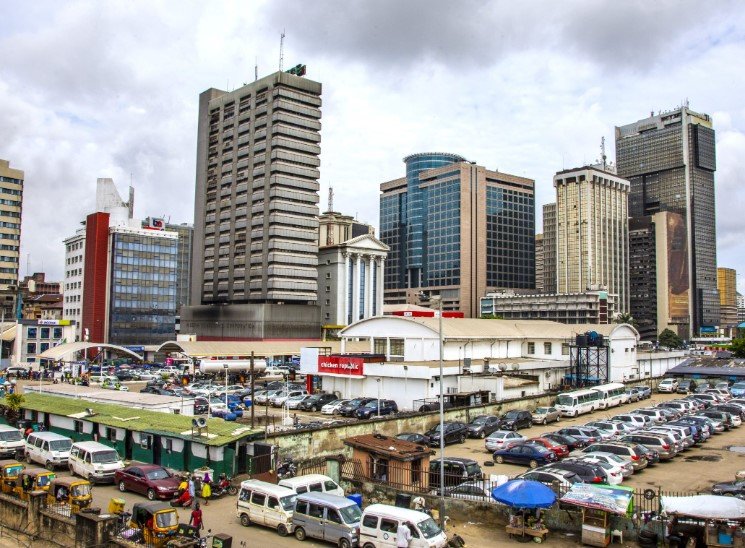Nigeria’s banking sector faces challenges as naira depreciation reduces the value of foreign-denominated assets, leading to slower credit growth to the private sector. Analysts report that this trend, combined with tight monetary policies from the Central Bank of Nigeria, keeps private sector credit subdued in 2025, with recent data showing a monthly decline despite yearly gains.
Recent Trends in Private Sector Credit
Private sector credit in Nigeria reached 76.14 trillion naira in June 2025, marking a 4 percent increase from the previous year. This growth came from 73.19 trillion naira in June 2024, but it dropped 2.2 percent month-on-month from 77.83 trillion naira in May 2025.
Experts point out that this moderate rise hides underlying issues. Banks worked to expand loans in line with central bank rules, yet the overall pace remains slow. In the first half of 2025, credit to businesses and individuals fell four times, reflecting caution among lenders.
The Central Bank of Nigeria injected over 4 billion dollars to support the naira in early 2025, which helped stabilize the currency somewhat. Still, ongoing depreciation pressures continue to affect lending decisions.
How Currency Depreciation Affects Bank Assets
When the naira loses value, banks with assets in dollars or other foreign currencies see those holdings worth less in local terms. This erosion impacts their balance sheets and limits how much they can lend domestically.

In 2024, the naira depreciated sharply after policy changes allowed it to float more freely. By mid-2025, it traded around 1,525 naira per dollar, down from about 460 naira in mid-2023. This shift caused banks to report forex gains initially, but sustained weakness now constrains asset growth.
Foreign inflows into the banking sector surged to 3.1 billion dollars in the first quarter of 2025, boosting capital. However, depreciation offsets some benefits by devaluing existing foreign assets.
Here are key ways depreciation impacts banks:
- Reduces the naira value of dollar-denominated loans and investments.
- Increases costs for importing goods, affecting borrower repayment.
- Forces banks to hold more capital against potential losses.
Central Bank’s Tight Policies Limit Lending
The Central Bank of Nigeria maintains a strict monetary stance to fight inflation and stabilize the naira. This includes high interest rates and limits on bank positions in foreign exchange.
In February 2025, the bank raised key rates, making borrowing more expensive for everyone. Analysts say this tight approach directly slows credit expansion, as banks prefer safer investments over risky loans.
The loan-to-deposit ratio requirement of 50 percent pushes banks to lend more, but high rates deter borrowers. Data shows net external reserves climbed to 40 billion dollars by August 2025, up from 3.9 billion earlier, thanks to these efforts.
Despite this, credit growth stays muted. Banks borrowed heavily in money markets, with short-term rates hitting double digits, adding to the squeeze.
Analyst Views on Future Credit Growth
Experts from firms like Cordros predict subdued credit growth in the short term due to ongoing depreciation effects and policy tightness. They expect a potential easing later in 2025 could spark recovery.
One banking executive noted that while credit jumped 65.9 percent to 74.31 trillion naira in parts of 2024, current conditions might cap further gains. Over the medium term, reinforcing deposit ratio limits could encourage more lending.
Social media discussions highlight public concerns, with users noting banks’ record profits from forex gains in 2023 and 2024, yet slower lending now. Posts suggest taxing those gains to fund infrastructure, reflecting broader economic debates.
| Month | Private Sector Credit (Trillion Naira) | Year-on-Year Change (%) | Month-on-Month Change (%) |
|---|---|---|---|
| June 2024 | 73.19 | N/A | N/A |
| May 2025 | 77.83 | N/A | -0.3 |
| June 2025 | 76.14 | 4.0 | -2.2 |
Broader Economic Effects and Outlook
This slowdown in private credit affects Nigeria’s overall economy, where businesses rely on loans for growth. With inflation still high and digital assets bypassing some forex controls, stability remains a challenge.
Recent events, like the central bank’s 166 million dollar sales to dealers in August 2025, aim to ease dollar demand. If successful, this could reduce depreciation pressures and boost lending.
Looking ahead, a shift to easier policies might help. For now, banks focus on managing risks amid uncertainty.
What do you think about these banking trends? Share your views in the comments and pass this article to others interested in Nigeria’s economy.








